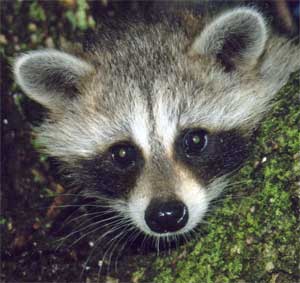Wildlife baby season is here which means people may come face-to-face with newborn squirrels, deer, rabbits, birds, raccoons and skunks during spring-cleaning.
The Humane Society of the United States (HSUS) receives an increase in calls this time of year from panicked homeowners who have stumbled across wildlife babies in their yards, attics, sheds, garages and yards.
According to Laura Simon, field director of urban wildlife for The HSUS, "Thousands of people contact us throughout the spring because they have found baby animals and assume that they need human help because the mother is nowhere in sight. Most people have very good intentions however all too often human intervention can result in orphaned wildlife."
When baby wild animals need human help:
- Baby squirrels: If they fall from a tree being cut down, immediately cease the tree-cutting and leave the babies out for the mother to retrieve. If it is cold, put the squirrels on a heating pad on low (using an extension cord) and place a flannel shirt underneath the squirrels so they do not overheat.
If the mother does not retrieve them by nightfall, contact a wildlife rehabilitator. Note: assume that any adult squirrels in attics right now are mothers with young.
- Fawns: It is normal for mother deer to leave their fawn alone for long periods of time to avoid attracting predators by the mother's scent (the young are odorless, therefore safer without mom around).
You should only be concerned and call a wildlife rehabilitator if the fawn is wandering and bleating constantly, or if a clearly lactating yet dead mother is found nearby.
- Baby rabbits: Similar to deer, baby bunnies are often left alone so that the mother's scent does not attract predators. Only if the babies have been attacked by an animal or injured by a lawnmower (or anything else), should you call a rehabilitator.
- Baby raccoons: Raccoon cubs are rarely left unsupervised, therefore, if you find a baby raccoon alone for more than a few hours outside, it is a sign that something happened to their mom and you should contact a wildlife rehabilitator.
To help avoid orphaning baby raccoons, do not use a trap. It may be tempting to set one for a garbage-raiding raccoon however you are likely to catch the mom and leave her babies orphaned.

Baby Raccoon
photo courtesy of Karen Bailey
"Scrap the trap" and instead, put your garbage out the morning of trash collection instead of the night before and deal with the problem at its source.
- Baby skunks: Sometimes baby skunks get separated from their mothers due to their poor eyesight. If you do find a nose-to-tail line of baby skunks running through your neighborhood, place a laundry basket over them, upside down, to hold them in place and give the mother a chance to find them.
If she does not retrieve them by the next morning, then a rehabilitator should be called. Remember to move slowly around skunks. Even baby skunks can "spritz" "baby spray" if they perceive that something is attacking.
- Baby birds: It is a myth that if a baby bird is touched by humans, the parents will reject it. The reality is that birds have strong maternal instincts and the best thing to do if you find a fallen chick is to put it gently back in its nest.
If the nest is inaccessible or destroyed, you can secure a nest-sized wicker basket close to the original nest. The parents should take over the new nest without a problem.
- Fledgling birds: You may think you see a bird with a broken wing, but many birds in June cannot fly yet because they are fledglings, i.e. birds who are in transition having left the nest but still needing to learn how to fly from the ground up.
You can tell if their parents are still taking care of them by watching to see if adult birds fly over to feed them and by seeing if there are bird droppings on the ground. Birds poop after they are fed, so fecal material indicates that his parents are around and all is well.
Simon also warns people as a general rule: "Don't cut down or destroy old hollow trees this time of year -- there are most likely babies of various species inside."
The HSUS Wild Neighbors Program promotes non-lethal means for resolving conflicts between people and wildlife and cultivates understanding and appreciation for wild animals commonly found in cities and towns.
Top of Page
Back to Pets
Back to Critters in the Yard

